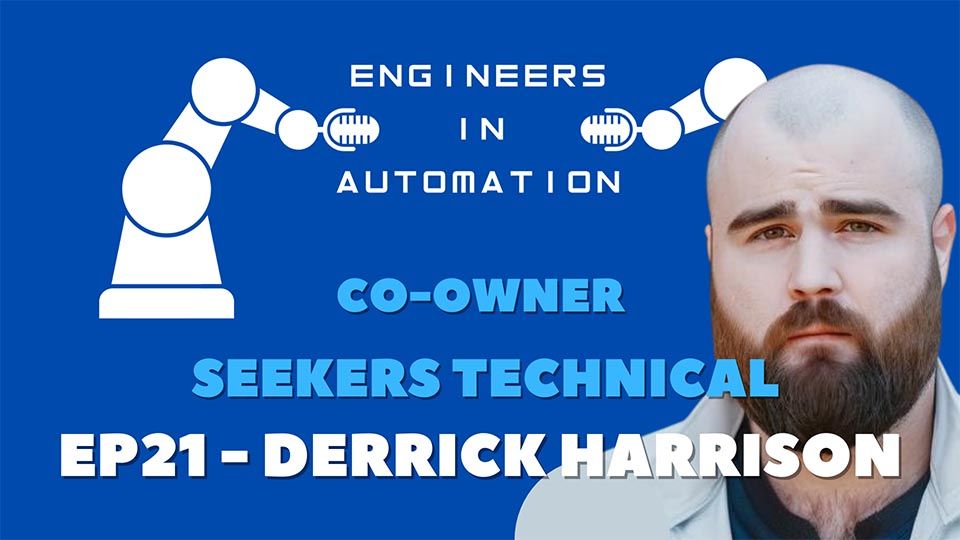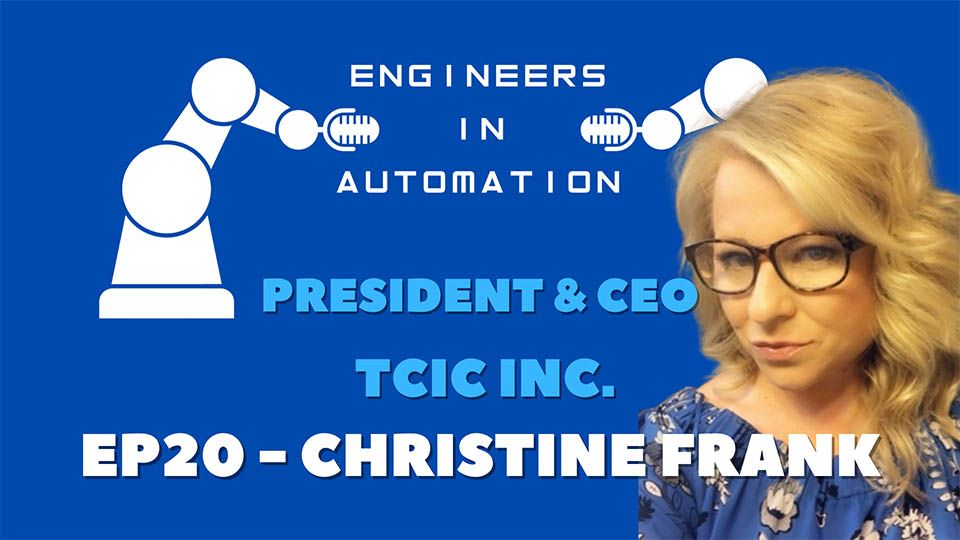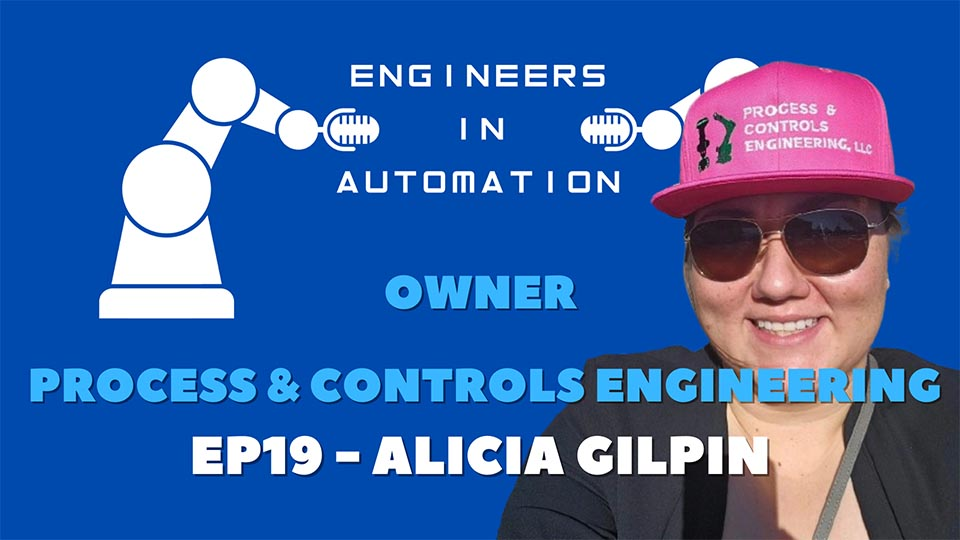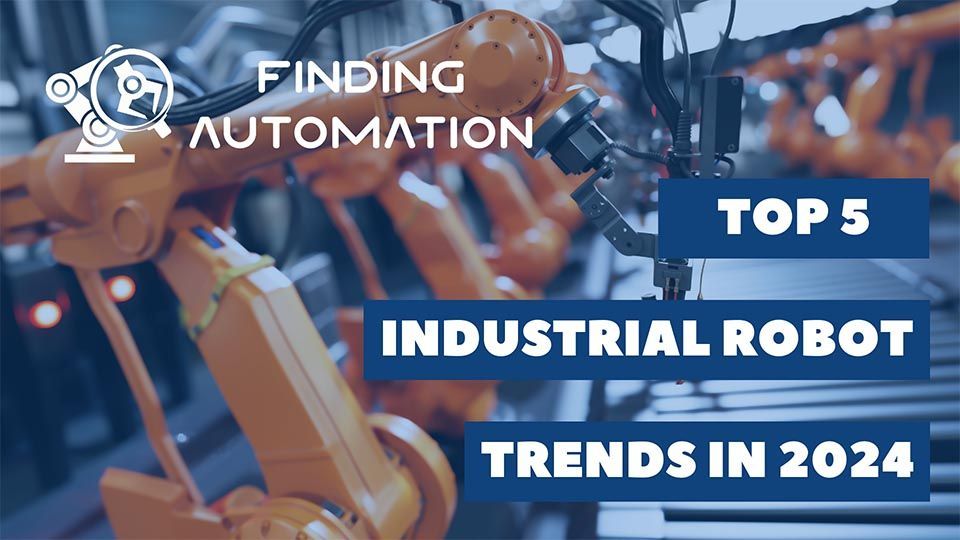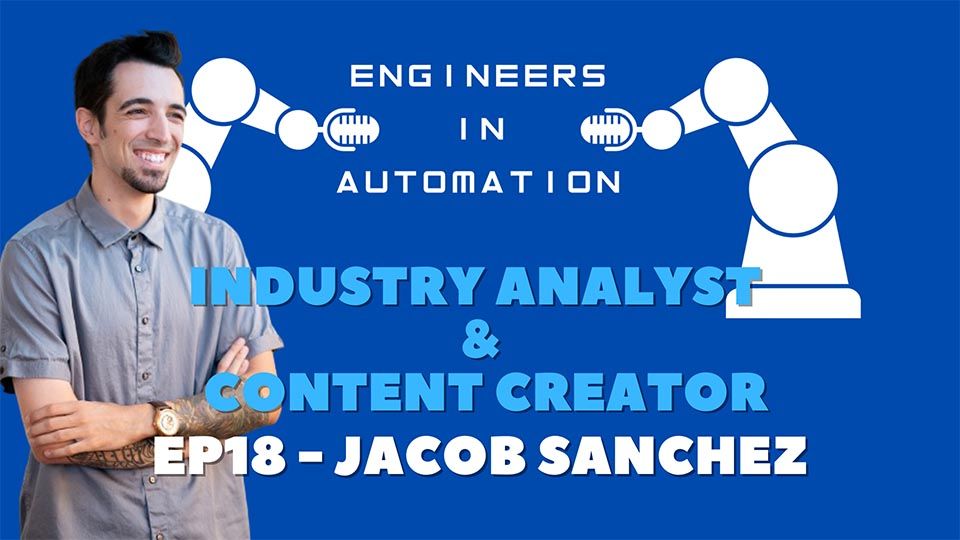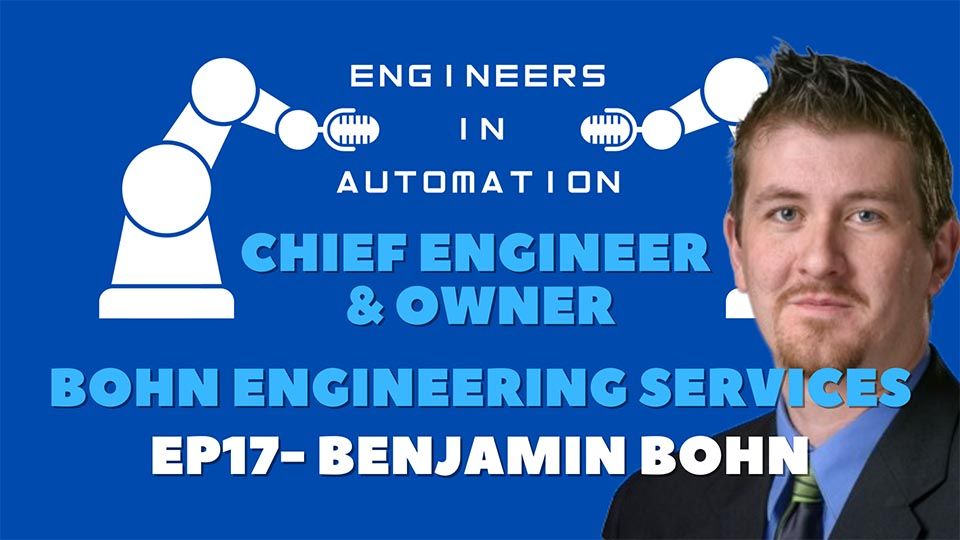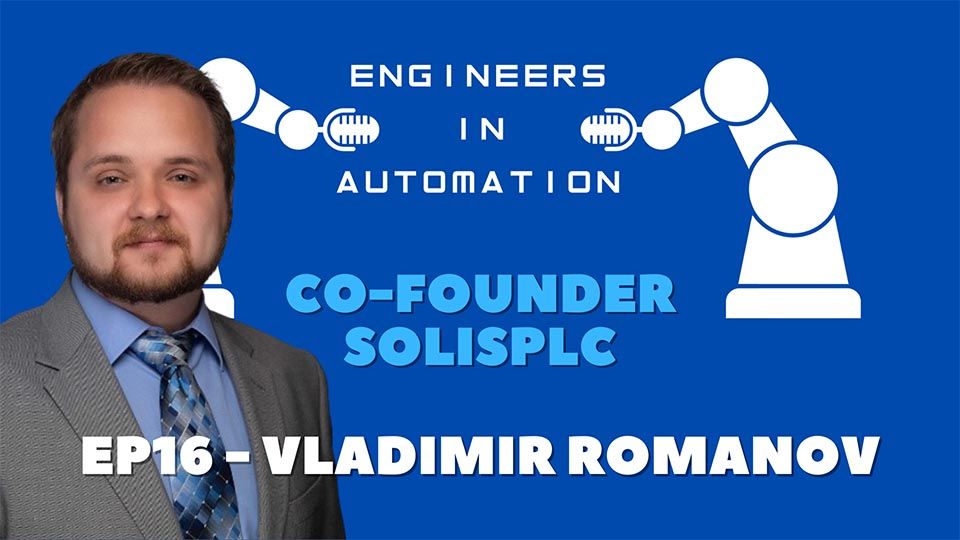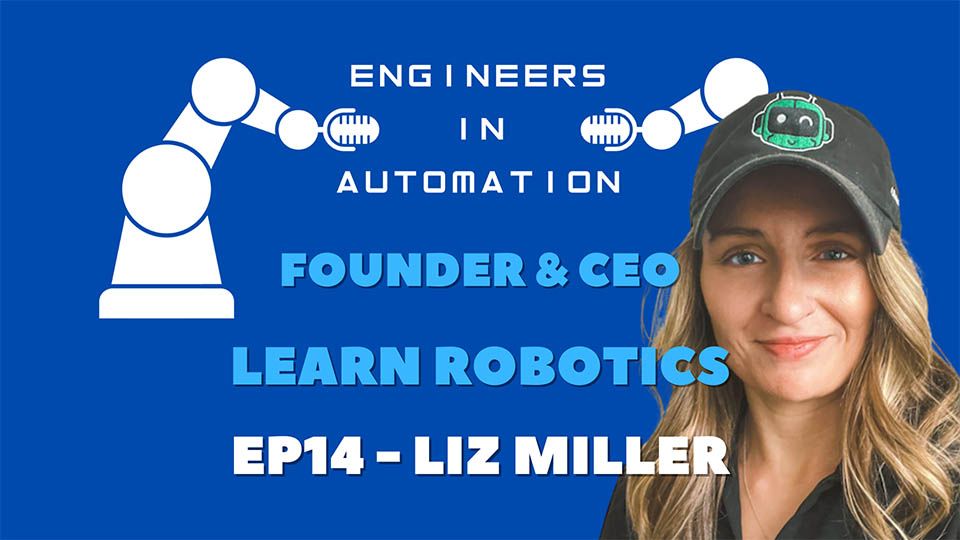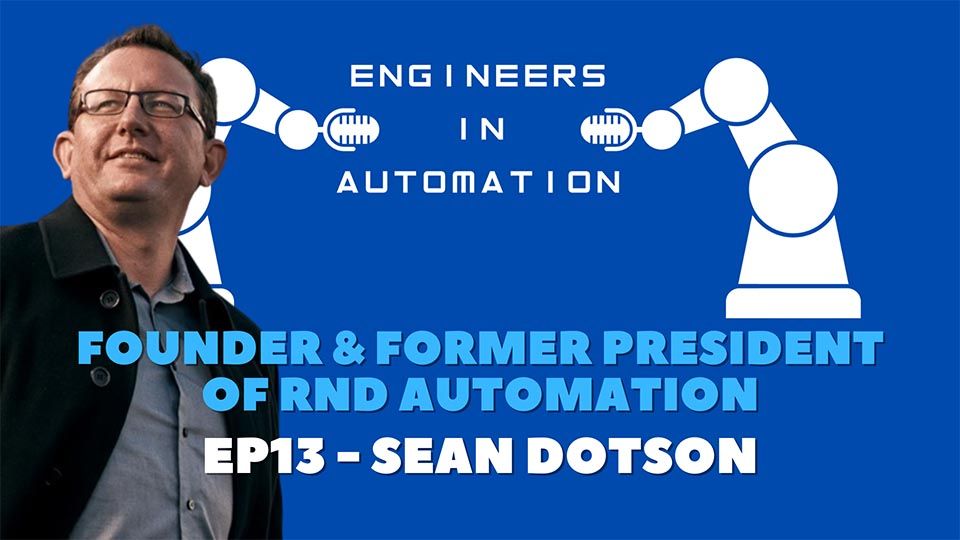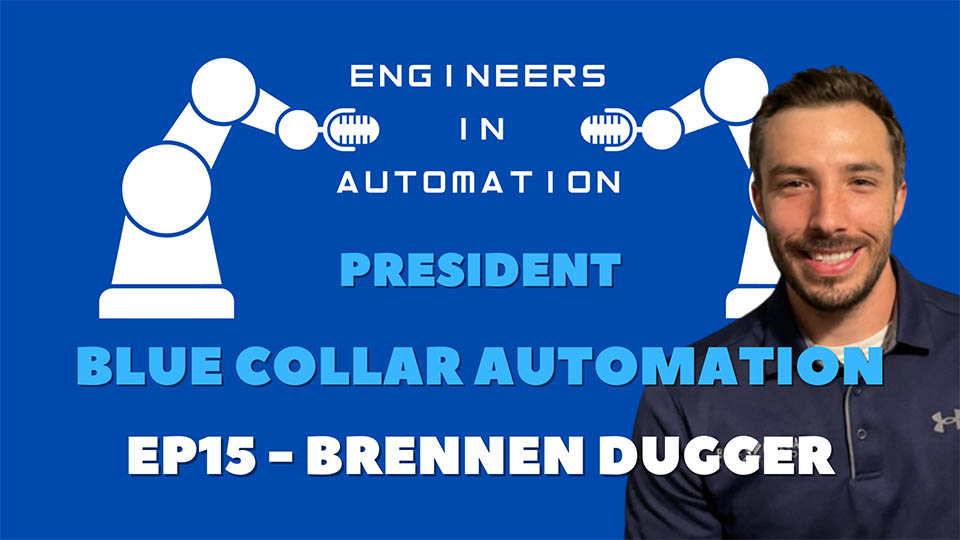Keegan Dillon – Host (KD):
Hi, my name is Keegan and I'm the founder of JOINER Services, and this is engineers and automation! On today's episode, we're going to talk to Malachi Greb, the owner, CEO, and engineer of Elite Automation. Their company specializes in the design, programming, and installation of automation equipment. Now let's go talk automation.
KD:
Welcome, I have my guest here. Malachi Greb, welcome to the show. Appreciate you coming on. Could you tell everybody a little bit about yourself?
Malachi Greb – Guest (MG):
Yeah, so Malachi Greb, CEO, and engineer of elite automation. A somewhat newer company that started out a couple of years ago. Overall, the journey has been, it's been a challenge, but then a wonderful challenge. We're up to, I believe, 15 employees now. Great, crazy, crazy growth.
I mean, we have definitely some very creative strategies that give us the ability to grow like that. You know, me personally, I've been in the industrial automation industry for I think it's been about 10 years now. I think I spent eight years with a systems integrator, basically doing what I do. Pretty much my entire day of going and going through college.
I expressed interest back when I was in college about wanting to be on the road and working and she had happened to go to college with somebody who had started their own company doing industrial automation. So, I landed that, I landed that job with them. And my journey just kind of started and I stuck it out at that company for about eight years before branching off and doing my own thing.
KD:
Oh, wow. That's, that's awesome. That's good to hear. And what year did you start then?
MG:
2020.
KD:
Okay, wow, good. Congratulations, you're already up to 15 employees. That's pretty impressive, then.
MG:
Yeah, well 2019. There was about six months we were in business, but it was like still the background, you know, getting stuff prepared, working on a little bit in the background. But I still had a nine-to-five job and, you know, just kind of getting some of the footwork done.
KD:
Yeah. Congratulations. And also, let me also say, congratulations, also, I saw you hit 12,000 followers on LinkedIn. So, if you're not following him, go ahead and go follow him over there. You're the content King, man, how the heck do you do it? That's what I want to know.
MG:
Well, I mean, in reality, I kind of accredited it to a couple of different things. One is sheer execution. And then the second thing is having a team to back me up. So, our team handles a lot of our creative now I kind of just approved a lot of it, and give them things to go off of. And just to get involved in the approval process, and just make things look the way that I want our brand to look overall. And then, you know, the execution side of things. It's like, I was talking to somebody today I was at an event. And basically, the conversation went along the lines of like, I barely know what I'm doing five minutes from now.
It's kind of like, I just pull out my calendar, oh, wow, I got this thing I need to attend to, you know, I'll kind of do a brief overview like a day or two before making sure I don't have to be like out of town, or I have to be like a few hours away. And if I don't, I kind of just don't put any brainpower into like what my next steps are. I generally take a few days out of the week and map out kind of what my main key goals are for the week. And then I put those on a calendar and I kind of don't think about them again until they pop up on my calendar.
KD:
Wow. Wow, about that. So let me ask you this, then. Is there a platform then that you prefer to share more on? I know, you have some great YouTube videos out there. You're pretty active on LinkedIn. Is there a platform that you prefer, especially for your business?
MG:
Yeah, so we're definitely 110% LinkedIn, we don't really social media wise, we, we use everything else, but like, I'm not like, truly super active on the other platforms. I do love YouTube in the sense of like, just being a utility to be able to help other engineers out in the field, like college students. It's kind of like our genres, just the automation industry. And like, just getting people more involved because like, I didn't even know about automation till I walk into a college. It was like, what do y'all have? And they're like, well, we have automotive, we have like some welding, you know, and we have this automation thing. I'm like, “what's that?”, you know?
KD:
Yeah, tell me more! Now me, I went down the weld path. So, although we both came to the same spot here, we're both in automation. So, with that, I guess, you know, you have a lot of work-life balance outside of work, you know, that you're involved with. I know you're also a fitness buff like myself and have a family, how do you keep that separate? You know, how do you make enough time, so you get that little bit of enjoyment outside of the automation industry?
MG:
Yeah, so I think this was, this was huge, and something I'm actually really passionate about. I think that for everybody, they have their own version of what work-life balance is. And they really need to create that for themselves. They can't go based on what anybody else's version of that is. So, for me, I'm like, 110% okay with like pretty much not seeing my kids Monday through Friday. And whereas I do see them, they're there in the evenings and whatnot. But that's where I devote my work.
And then and then when it comes to the weekend, I try to completely shut off if I have the ability. I try not to really answer emails or, or do much of anything. Sometimes, like on a Saturday morning, I may wake up at like 5 am and work a couple of hours, and then by the time 7 am rolls around the kids are starting to wake up. I’m done with it and I can spend time with the family.
KD:
Yeah, that's great. And how do you make time for fitness? Especially, you know, I know you do spend some time on the road. How do you squeeze that in there, too?
MG:
Yeah. So, for the fitness thing that, one I kind of adapt when, when I work out. So, it kind of shifts around in my life quite a bit. Like as of now I'm doing working out in the morning time. So, I'm waking up at like, 430 in the morning trying to be at the gym by five and trying to leave by seven. Then that I've had a schedule from where I'm trying to be at the gym, it's at four, four in the afternoon, and try to leave by 6 pm. Yeah, kind of just let it fall on my life. Whatever works best with my current schedule.
KD:
Understandable. So, on the automation side, let's kind of jump back into that now. What’s a great automation project that you've worked on, that you've really enjoyed? Can you kind of go into some detail about that?
MG:
That's really, it's definitely hard. And I like all of them.
KD:
Yeah, well, so do I, I love anything, you know, whether you're making small equipment, or you know, working on an assembly line, it's all fun. But what's the best project you've done? Do you think?
MG:
So, I definitely like anything that involves vision and in-line tracking. One application that we did that was pretty intensive was basically we picked apart, we did a dispensing application on it, then we had to do a 3D measurement of the volume of dispense material onto the park to meet tolerances, and then that part had to be placed within like, point one millimeter onto like a piece of glass. That was definitely an interesting, interesting project, mainly, mainly for tolerance’s sake, it was just like super high tolerances.
KD:
So, I guess the next question then would be, what are some of your likes about the automation industry? Do you have a top three likes about the industry or a top two that you really enjoy?
MG:
Probably the, I would say at least top two for sure. One is, especially being a systems integrator, I love the diversity, and I love that every application is different. So, it's like, you can be doing yours and run applications you've never even done before. So, and every application technically you've never done before unless it's an exact repeat system, which doesn't happen very often, you know. Normally handling a different part or something about the operation is different.
And then the second thing probably is the technology. It's just really cool. Like being able to see how data works and how data works from like the real world and goes into the digital world and doing stuff as you know, robots’ Cartesian space and like how the line tracking, like how that correlates with the robot and, or vision location. You know, and after you understand a lot of intent to understand it's fundamentally the same.
It's just kind of a different way of going about doing it and or if it's different like input device.
And really, I think there's going be also a ton into the future on what we do with that space. Like our world as a whole like going into like autonomous vehicles and stuff like that you're going to start seeing a lot of these industrial technologies that are our actual day-to-day lives.
KD:
Yeah, yeah. Okay, so on that, let's go the opposite way, give me a dislike about the automation industry.
MG:
Dislike, that one is a hard one. Realistically, I think it's not even automation industry-specific, but I think it's part of the business itself. And it moves too slowly. It's like, you know, the discussion of like, talking about doing a project like, that discussion will be six months, before, you go to move on a project.
Or just like a lot of things is like, can be something like just engineer, whatever the thing is, like, instead of having like, 50, meetings to discuss, whatever, before you do the engineering, it's like, there's a lot of time wasted in like, kind of like the bureaucratic, side of things.
KD:
Well, I guess that probably does help you though being a little bit smaller company, they'll make those quick and fast decisions, as well, I would think.
MG:
Yeah, for sure. And, and that's what I'm really trying to do with our company into the future is like, I want to try to keep, like, design our company and have systems in place, that we can always operate very quickly.
So instead of us becoming like this, this massive company, where, you know, this team over here has to get approval from these guys up here, I more so, want like individual teams to operate as their own entity in the sense. Not like, they necessarily have to get approval, it's like, this person is in charge of their project, they own their project, they do, you know, all the tasks that are necessary.
And then maybe you have like, upper level, like a project manager or something like that, who just ensures that like, from a business standpoint, like this project is going smoothly. All of the customer’s requirements are being met, and customers are happy, kind of just more of like the PR side of things, which should still have like, no impact on what's going on with the project itself. Unless it unless it's pushing that project to move quicker, move quicker, and just move forward with its operation.
KD:
That kind of, you know, rolls into my next one. What are some lessons learned in the automation industry that you've had?
MG:
One key one is things always take longer than you think they’re going to take.
KD:
Yeah, absolutely. And then on that, lessons learned, where do you go to learn? So, I know, you're going to run into some issues here and there, where is your go-to spot to find out more information on YouTube, other engineers, or other owners? Where do you go to learn?
MG:
So definitely, it's probably YouTube is the first number one thing, as part of the reason why we created a YouTube channel. Is because like, boom, that's where I go, I’m going to YouTube. And it's like, wow, there's nothing here, really, you know, so then it kind of falls back into now you're really at the bottom. The best next best thing is like documentation, you know, like going through like FANUC documentation, or Allen Bradley PLC documentation, or forums too.
Forums are actually really good, like really like old-school forums. Those tend to be very, very helpful, especially whenever you have like, some weird issue that you're seeing, and it doesn't really feel like maybe instead of going back to FANUC again, and in its manual, it says, “it's this,” “it’s that,” and all of them saying the server boards bad. But it's like, it's like, it just defaults to replace the servo board. But that's not the root cause of the problem. It’s just how their manual operates. So yeah, you can get some good content out in forums that can help save you from replacing a servo drive.
KD:
Yeah, absolutely. So, I know you mentioned earlier about some of the events that you're traveling to, what are the events that you're going to this year? I know there are quite a few now kind of with covid starting to slow down and everyone's getting back out there. Are there a few events that you're looking forward to, maybe coming up to the Detroit area to Automate? I'll hopefully be there.
MG:
Yeah, hopefully, I'll see you there!
Automate
is definitely one of them. There's a
Modex
event that's here. I think it's like the 28th through the 31st. That one's in Atlanta, Georgia, I believe. And really, all these events. I'm anticipating being there for the whole extent of the event, like a four-day event, I'm going to probably be there for all four days.
KD:
The power of networking.
MG:
Yeah, probably from the time the doors open to the doors closed. And then doing some other small ones. So like
Neff
one of our vendors, they've been hosting some events, and these events, they're there in all their sales regions. And then I'm following those Neff events around to all their different sales regions to basically the same thing, just network with them see what kind of technologies they have built, build stronger relationships with the individuals that are, that are our vendors that we do work with on a regular basis.
Actually, a funny story. Before this meeting, I shot a YouTube video that was basically explaining for individuals go to events to like land jobs.
KD:
There you go. Yeah, great timing then. And then what do you see as the future of automation? And then where do you see the future of your company?
MG:
So, the future of automation, I think, I think it's completely endless. I think that everything's going to get more virtual, more virtual, I mean, you got something like, like the metaverse type of stuff, where that's like, completely virtual. And then at that point, it's like, depending on how much we adopt that, then is there even a real world, you know, do we live in a real-world determine, you know, but I think though, that our real world will continue to move in that direction, you're going to start to see, really everything just from the purchase of an item to being delivered at your door, the whole entire process is probably going to get restructured.
And you and you see companies that are performing extremely well, like Amazon's who've already adopted like AMR technologies, just completely, like, did an overhaul on their infrastructure. Or as they develop their infrastructure, they developed it in a way around automation. So like, that's a big thing is manufacturing itself is going to have to kind of go back to the drawing board and develop itself around automation as a whole. And, how do we go from somebody clicking a button on a website, to actually producing the part putting it on a truck, and delivering it to their house?
KD:
I’m waiting for the day when I can sit in the comfort of my own home and program a robot, you know, with put some goggles on and move some things around? It'll happen but waiting for that day.
MG:
Yeah. And that's all like for us as a company. Like, that's part of our business model is like we are programming so many things remotely. We're really doing like last like five to 10% of the programming on the physical robot, we're trying to do everything in simulation and through simulated software.
And then, as far as our long-term goals a huge one is we want to get more involved with the education space. So, we want to get to the point where we are embedded within like even like elementary school middle school high school, all the way through to college. Yeah, we're like, you know, especially at some point where we're like, financially funding some of these or for just helping them develop these systems, just whatever level of involvement we can get in it, obviously, it'll change as we grow as a company.
But even at this point, like, you know, with like me being involved with like, maybe just doing guest speaking of these facilities, and you know, long term it's, it's having the fully integrated educational system with them, and even maybe even starting our own accredited colleges in our own automation space.
KD:
That's really cool. Really cool. And I guess another question, I had your man have lots of inspirational words, what's your favorite inspirational quote that you have right now, whether it's your own or someone else's?
MG:
The first one that comes to mind is “the truth always wins.” You know, I probably have, like, you know, I probably have like, five to 10 of them that are like the full ones that I kind of live by.
“The ability to deliver,” is a huge career one. You know, if you have the ability to deliver then you can do just about anything.
Doing the right thing is always the right thing. And these are all kinds of like just simple like, you know, ways to live by, and just to me, I feel like they're like universal laws that if you follow them that good things come to all people around you and yourself.
KD:
Couldn't agree more. And kind of the last question here to sort of wrap this up, where can people find you?
MG:
Oh, people can mainly find me on LinkedIn, especially if you are trying to communicate with me. And or see what we have going on. Then secondly, you can see me on YouTube, there's not going to be direct communication with me. But you can see like, some of the things will go on that we have going on and my insights on the industry, things along those lines. Yeah, definitely. LinkedIn is the place to go. And I advise anybody who doesn't have a LinkedIn account, to get a LinkedIn account. It's the best. It's one of the best places to get a job, network, and learn. It’s a great place.
KD:
Awesome, great advice! Well, thanks for being on the show with us today and we hope you all enjoyed this episode. So give us a like, comment, share, and subscribe, and we look forward to having you join us next time on engineers and automation. Thanks.
MG:
Have a good one!
